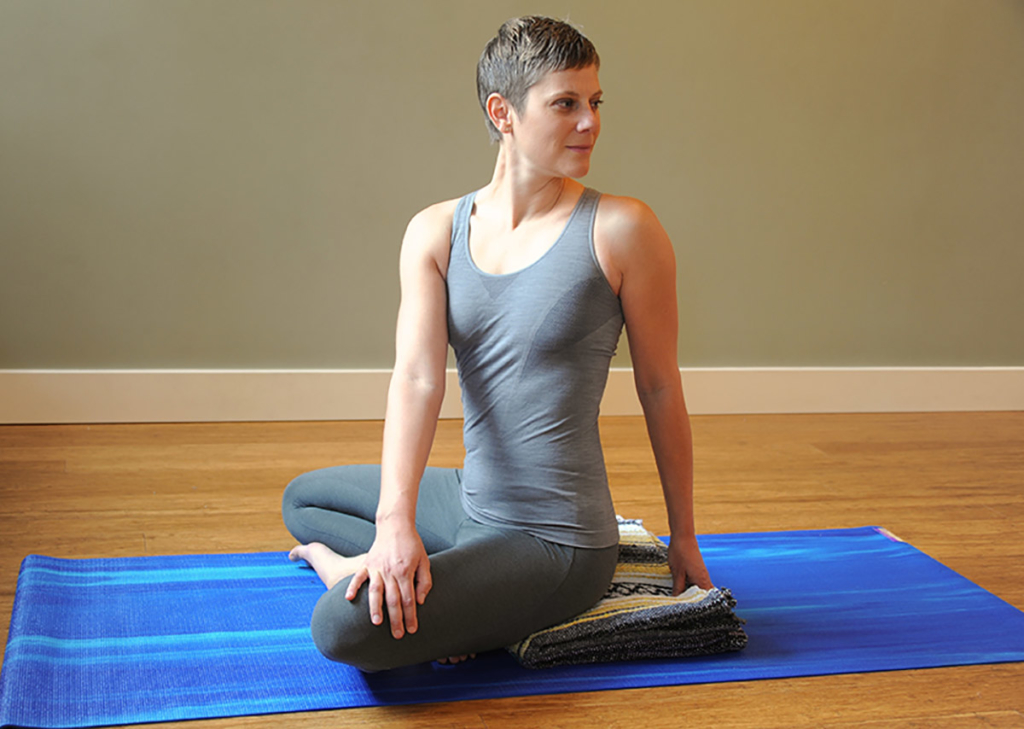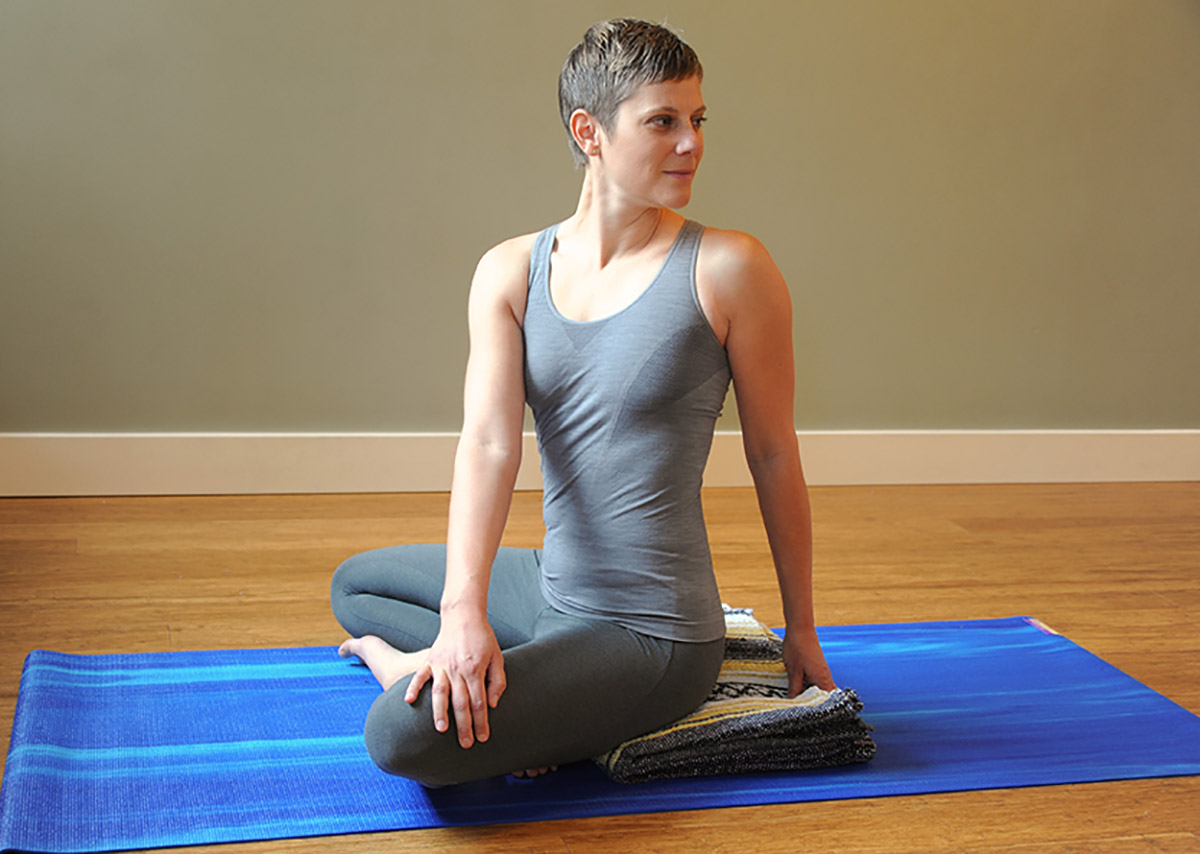This entry was posted on Aug 21, 2025 by Charlotte Bell.

There’s plenty of debate within the running a blog/social media world about what yoga is and isn’t. Standard yoga is commonly seen as a sped-up model of yoga asanas (postures). Whereas a smaller, however simply as vocal, camp see yoga as an entire system that features meditation and each day life follow. As a yoga practitioner of just about 40 years, I fall into the second group. If I needed to decide one facet as essentially the most primary basis of yoga, I’d select ahimsa.
Ahimsa is the primary of the yamas, which comprise the primary of yoga’s eight limbs, based on the yoga sutras. The yamas are ethical/moral pointers for residing consciously. Ahimsa is normally outlined as non-harming. That’s a great begin, but it surely’s greater than that. Sutra scholar Alistair Shearer calls it “dynamic peacefulness.”
I really like this definition. As an alternative of merely avoiding hurt, the phrase suggests energetic participation in residing a peaceable life. For me, it additionally implies a cultivated state of inside peace. We are able to act from this inside state of peace in our yoga follow and in our lives.
Ahimsa on the Yoga Mat
We are able to follow ahimsa on or off the mat. Listed here are some methods to discover ahimsa on the mat:
- Test Your Judgments: All of us come to yoga follow with sure genetic and routine bodily qualities. A number of the qualities are conducive to sure poses. A few of them would possibly hinder our capability to follow some poses. We’re all totally different. Evaluating your self to others within the class can take the enjoyment and spontaneity out of your yoga. Discover the occasions whenever you choose your self compared to others—positively or negatively. (Then take care to not choose your self for judging!) Discover the way it feels. As an alternative, tune in to your inner expertise within the pose. What are you able to be taught?
- Test Your Respiration: Finally, our yoga follow ought to replenish our energies. However very often, pushing and striving on the mat can truly deplete our energies. Probably the most dependable method I’ve discovered to observe my effort is to verify in with my respiration. If I’m working towards at my clever edge, my respiration will likely be relaxed and deep. If I’m pushing up towards my physique’s limits, my respiration will really feel shallow and restricted. Respiration deeply in yoga postures is what permits us to really feel that incomparable calm power after we end Savasana (Rest Pose). In case your respiration is restricted, again off and do much less.
- Test Your Stretching: Yoga is best once we observe a “much less is extra” technique. Western tradition loves depth and the “no ache, no acquire” mentality. That’s not what asana follow is about. Ache is a sign that we could also be inflicting hurt. Goal for a gentle to reasonable stretch, one that provides you room to discover.
Cultivating Dynamic Peacefulness
Ahimsa off the mat is a big follow. You may spend the remainder of your life simply specializing in this single yama. In my e book, Conscious Yoga, Conscious Life, I am going into rather more element about a number of the methods of working towards ahimsa, however listed here are a number of concepts:
- Assume Earlier than You Act: The difficult factor about ahimsa is that non-harming motion can differ relying on the scenario. Let go of evaluating actions as “good” or “unhealthy.” As an alternative, as you take into account taking an motion, ponder whether or not you imagine your motion has potential to trigger hurt or to convey happiness. Additionally, ponder your intentions. Are you contemplating taking motion out of anger, greed, jealousy or another unskillful psychological state? Or are you taking motion out of compassion, kindness, generosity or another skillful state? Conscious speech is a big space of exploration. Listed here are some concepts for refining your speech.
- Domesticate Dynamic Peacefulness: When our actions are aligned with our integrity, and our selections are skillful, we naturally really feel extra peaceable. So working towards the above suggestion can go a great distance towards cultivating dynamic peacefulness. However we will do that in our meditation and yoga follow as effectively. You’ll be able to follow the above “Ahimsa on the Yoga Mat” solutions. It’s also possible to take time to follow mindfulness and kindness meditations. Finally, we wish the state of dynamic peacefulness to be the place we’re coming from, in order that ahimsa guides our actions naturally.
- Take into account Your Selections: We are able to categorical ahimsa in our way of life selections. For instance, we will select to purchase merchandise which can be pleasant to the Earth. Or we will select whether or not or to not eat animals. It is a difficult one, typically fraught with judgment. For a few of us, the selection is straightforward as a result of going meatless feels good. For others whose our bodies thrive on animal merchandise, the ahimsa-informed selection is likely to be to devour meat. To begin, decide one space that you simply really feel obsessed with—residing small, getting concerned in charitable causes, being out there to struggling mates or relations. There are many methods to domesticate dynamic peacefulness in your life. What do you’re feeling obsessed with?
Please tell us the way you domesticate ahimsa, on and off the mat.
About Charlotte Bell
Charlotte Bell found yoga in 1982 and started educating in 1986. Charlotte is the creator of Conscious Yoga, Conscious Life: A Information for On a regular basis Follow and Yoga for Meditators, each revealed by Rodmell Press. Her third e book is titled Hip-Wholesome Asana: The Yoga Practitioner’s Information to Defending the Hips and Avoiding SI Joint Ache (Shambhala Publications). She writes a month-to-month column for CATALYST Journal and serves as editor for Yoga U On-line. Charlotte is a founding board member for GreenTREE Yoga, a non-profit that brings yoga to underserved populations. A lifelong musician, Charlotte performs oboe and English horn within the Salt Lake Symphony and people sextet Purple Rock Rondo, whose DVD received two Emmy awards.

